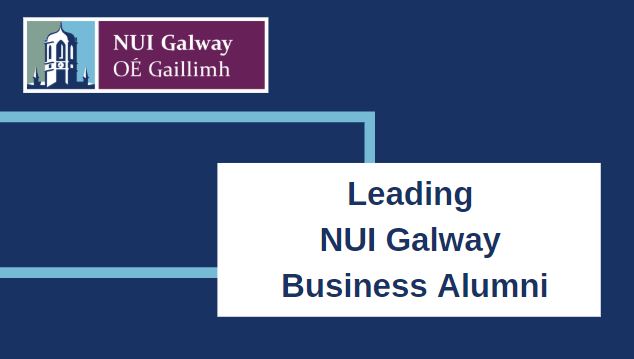-
Courses

Courses
Choosing a course is one of the most important decisions you'll ever make! View our courses and see what our students and lecturers have to say about the courses you are interested in at the links below.
-
University Life

University Life
Each year more than 4,000 choose University of Galway as their University of choice. Find out what life at University of Galway is all about here.
-
About University of Galway

About University of Galway
Since 1845, University of Galway has been sharing the highest quality teaching and research with Ireland and the world. Find out what makes our University so special – from our distinguished history to the latest news and campus developments.
-
Colleges & Schools

Colleges & Schools
University of Galway has earned international recognition as a research-led university with a commitment to top quality teaching across a range of key areas of expertise.
-
Research & Innovation

Research & Innovation
University of Galway’s vibrant research community take on some of the most pressing challenges of our times.
-
Business & Industry

Guiding Breakthrough Research at University of Galway
We explore and facilitate commercial opportunities for the research community at University of Galway, as well as facilitating industry partnership.
-
Alumni & Friends

Alumni & Friends
There are 128,000 University of Galway alumni worldwide. Stay connected to your alumni community! Join our social networks and update your details online.
-
Community Engagement

Community Engagement
At University of Galway, we believe that the best learning takes place when you apply what you learn in a real world context. That's why many of our courses include work placements or community projects.
Economics in the B.Comm
Economics in the B.Comm
The B.Comm degree is a very flexible programme that covers all business areas, before a student chooses a specialism in final year in one of the following:
- accounting
- economics
- management of human resources
- marketing
- business information systems
Economics in the B.Comm
All B.Comm students take economics modules in each year, starting in first year with courses in the core ideas and concepts in economics, at both a micro and macro level.
This is built upon in second year with further courses in core theory, and some further economics options in the 2nd semester of 2nd year.
In final year, students who wish to specialise in economics have a number of obligatory modules, and a choice from a range of elective or courses.
These can range over the economics of financial markets and banking, the economics of health, environmental and natural resources economics, the economics of public policy, comparative economic thought, international economics, and the study of Ireland's economy in the context of global developments.
So, in taking a B.Comm, you have the option of specialising in economics, while at the same time taking a full range of modules in the main business disciplines.
Why study economics within the B.Comm?
Studying economics gives you:
- An insight into the various economic relationships in the real world around you
- An introduction to the analytical tools you need to help you to explore and understand these relationships
- The opportunity to deepen your understanding of current affairs, the economics of the market place, economic factors influencing politics and how economic issues have influenced the course of history.
What will I be studying?
The study of economics at introductory level comprises two branches. First, microeconomics analyses the behaviours of individual people in markets as workers, consumers/savers and owners of capital. The second branch, macroeconomics, considers the economy at the aggregate level, combining all those individual people and their enterprises. At a national or international level, the state of an economy may be influenced by government policies and we study what impact different policies are likely to have on an economy.
These first year courses in both microeconomics and macroeconomics (some core economics courses are obligatory for all B.Comm students) can be taken as a satisfying complement to other degree subjects or as the start of a degree in economics. i.e. a B.Comm with a specialism in economics.
In the second and final years of the degree, students delve deeper into these themes and explore other dimensions to economic life. Other upper-level courses range over Irish economic history, environmental economics, money and banking, public sector economics, development economics, and health economics. Throughout a course of study in economics, students encounter the interplay between theory to guide our thinking and the challenges of testing that theory against evidence. An ultimate aim is to use this knowledge to help design economic policy at micro and macro levels.
Other options
In addition to the core B.Comm degree, economics is a component of many other business degrees, including the 4 year B.Comm (International) programmes, taken with a core lanaguage and involving a third year studying abroad. Increasingly, options for international study are integrated into degree programmes across the University. See links below for further details.
Learn more about:
- The B.Comm degree
- Other degrees at the J.E. Cairnes School of Business & Economics
Downloads
-
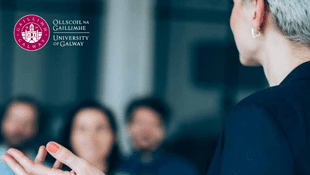
Business Postgraduate Programmes 2024 PDF (4.7 MB)
-

Postgraduate Prospectus 2025 PDF (3.3MB)
-
.png)
Business Undergraduate Prospectus 2025 PDF (1.57MB)
-
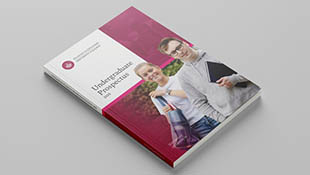
Undergraduate Prospectus 2025 PDF (12.4MB)
-
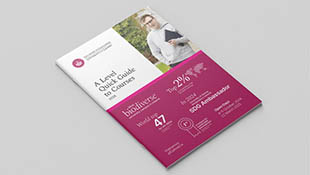
A Level Quick Guide 2025 PDF (337 KB)
-
Leading Business Alumni Book PDF (1.57)
-
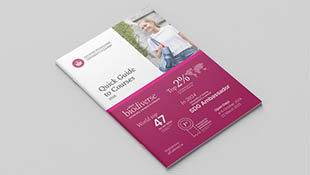
Quick Guide to Courses 2025 PDF (362 KB)








